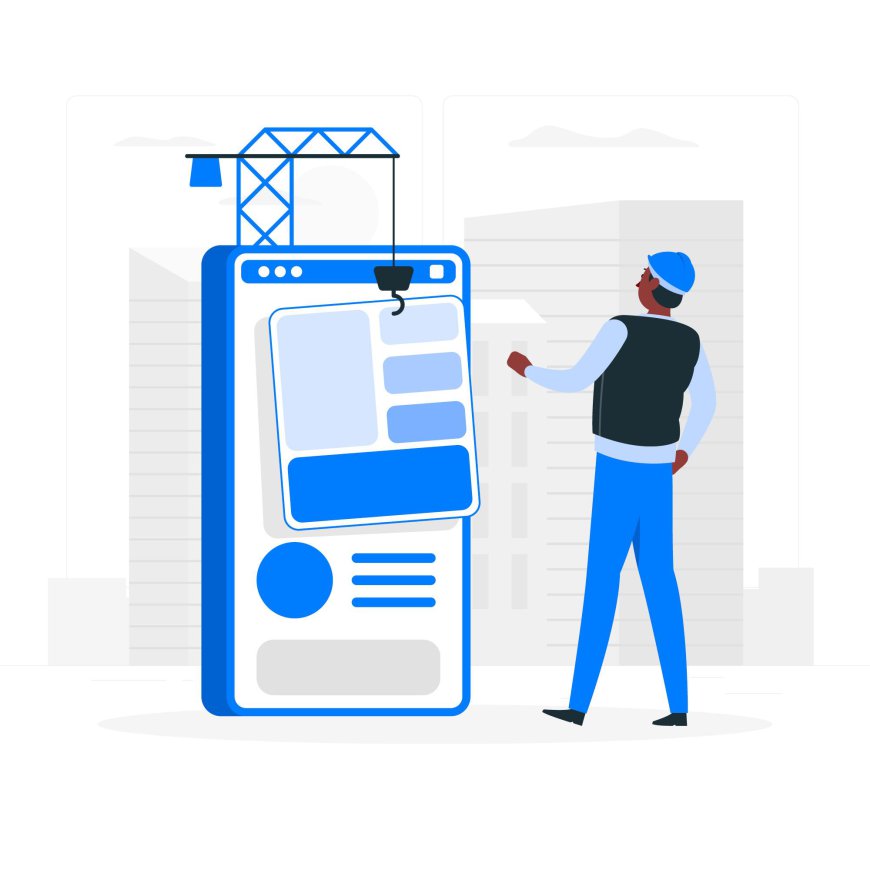E-commerce App Development Cost: Freelancers vs Agencies vs In-house Teams
ecommerce app development cost, and how does it vary depending on who builds the app?

In today's digital-driven world, having a robust e-commerce app is no longer optional but a necessity for businesses aiming to thrive in the competitive online marketplace. However, one of the most common questions that arise during the planning phase is: What is the actual ecommerce app development cost, and how does it vary depending on who builds the app? In this blog, we’ll explore the cost implications of working with freelancers, agencies, and in-house teams, highlighting the pros, cons, and key considerations for each option.
1. Freelancers
Freelancers are independent professionals who offer their services on a project basis. They are often hired through platforms like Upwork, Freelancer, or Fiverr.
Pros:
-
Cost-Effective: Freelancers are generally more affordable than agencies or in-house teams.
-
Flexibility: You can hire freelancers for specific tasks or short-term projects.
-
Diverse Talent Pool: Access to global talent with specific expertise.
Cons:
-
Lack of Accountability: Limited oversight may lead to missed deadlines.
-
Scalability Issues: One freelancer may struggle to handle complex, large-scale projects.
-
Quality Control: Skill levels and output quality may vary.
Cost Estimate:
Freelancers typically charge on an hourly or per-project basis. Hourly rates can range from $20 to $100 per hour, depending on experience and location.
Best For: Small projects, MVPs, or businesses with budget constraints.
2. Agencies
Development agencies are professional firms with dedicated teams for design, development, testing, and deployment. They offer end-to-end e-commerce app solutions.
Pros:
-
Comprehensive Services: Agencies cover all aspects of app development.
-
Proven Expertise: Experienced teams with diverse skill sets.
-
Scalability: Capable of handling large and complex projects.
-
Project Management: Dedicated managers ensure deadlines and milestones are met.
Cons:
-
Higher Costs: Agencies are generally more expensive than freelancers.
-
Less Flexibility: Fixed contracts might lack customization.
-
Potential Communication Barriers: Larger teams might lead to miscommunication.
Cost Estimate:
Agencies usually charge between $50,000 to $200,000 for full e-commerce app development, depending on project complexity and features.
Best For: Medium to large-scale projects requiring robust development and support.
3. In-House Teams
An in-house team consists of full-time developers, designers, and QA testers employed directly by your business.
Pros:
-
Full Control: Direct supervision and management of the development process.
-
Aligned with Business Goals: Team members are invested in long-term success.
-
Quick Iterations: Faster response to changing requirements.
Cons:
-
High Overhead Costs: Salaries, benefits, software licenses, and infrastructure can be expensive.
-
Talent Acquisition Challenges: Finding skilled developers can be time-consuming.
-
Limited Skill Diversity: Smaller teams might lack specialized expertise.
Cost Estimate:
The cost of maintaining an in-house team can range from $100,000 to $500,000 annually, including salaries, benefits, and overhead costs.
Best For: Large enterprises with long-term development goals and consistent app updates.
Comparing Costs: Freelancers vs Agencies vs In-house Teams
|
Aspect |
Freelancers |
Agencies |
In-House Teams |
|
Cost |
Low |
Moderate to High |
Very High |
|
Scalability |
Limited |
High |
Moderate |
|
Quality Control |
Variable |
Reliable |
Reliable |
|
Flexibility |
High |
Moderate |
Low |
|
Long-term Support |
Limited |
Available |
Available |
Key Factors Influencing E-commerce App Development Cost
Regardless of the team you choose, several factors influence the overall ecommerce app development cost:
-
App Complexity: Features like AI integration, payment gateways, and custom dashboards increase costs.
-
Technology Stack: Native apps (iOS/Android) generally cost more than cross-platform apps.
-
Design and UI/UX: Custom designs are pricier than template-based solutions.
-
Location of Developers: Developers from North America or Europe typically charge more than those from Asia or Eastern Europe.
How to Choose the Right Option for Your Business
-
Small Businesses and Startups: Freelancers are a cost-effective choice for MVPs.
-
Mid-sized Businesses: Agencies provide a balanced approach to quality and scalability.
-
Large Enterprises: In-house teams offer control and long-term commitment.
Conclusion
The ecommerce app development cost varies significantly depending on whether you choose freelancers, agencies, or an in-house team. Each option has its own set of advantages and challenges. Freelancers are cost-effective but may lack consistency, agencies deliver quality at a higher price, and in-house teams offer control but come with significant overhead costs.
Understanding your business goals, budget constraints, and long-term vision will help you make an informed decision. No matter which route you choose, investing in a well-planned e-commerce app is a step towards sustainable business growth in the digital age.

 vishvjeetsinh
vishvjeetsinh